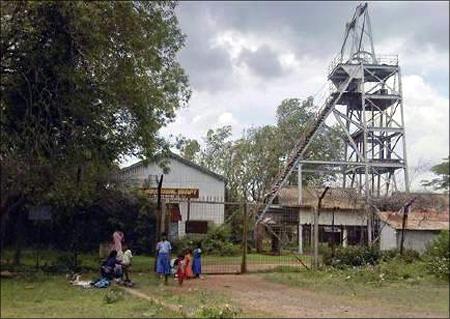
Everyone wants to horde gold these days. But the ever increasing demand of the precious metal seems to have put people living near the gold mines at risk.
A study in Karnataka has indicated that even those areas where gold mines have been shut down are heavily contaminated with arsenic. The element causes cancer among other things.
Karnataka has two working gold mines and is one of the few places in India where the metal is found. Business is good.
...
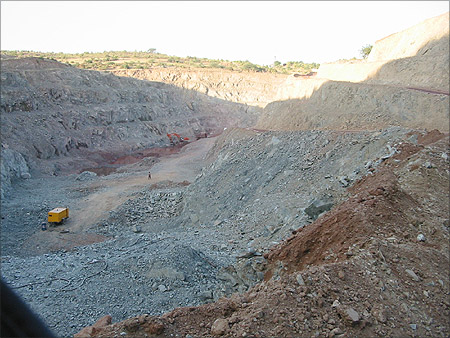
The Hutti Gold Mines Company Limited in Lingsugur bagged a net profit of Rs 188 crore after tax deductions in 2011-12. To cash in on the boom, the state government is hunting for gold in new areas besides planning to reopen old mines.
It granted a prospecting licence to Deccan Exploration Services Private Limited in October, to look for gold in Dharwad district.
But the study has come as a warning. It shows high arsenic levels in water, soil and food samples from Kiradalli Tanda, a small village in Yadgir district.
...
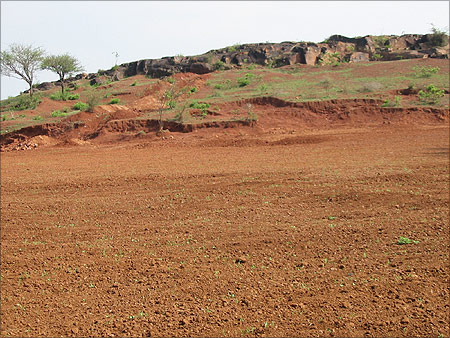
The village is 4 km south of Mukangavi gold mine and minerals containing arsenic have been found in the area.
Gold mining in such areas has been known to release arsenic in the environment. The mine was operational from 1887 to 1913 and was reclaimed in 1980 to resume mining operations before being finally closed down in 1994.
Government surveys carried out in 2008 and 2010 have shown that drinking water in many areas of the state has high arsenic levels.
...
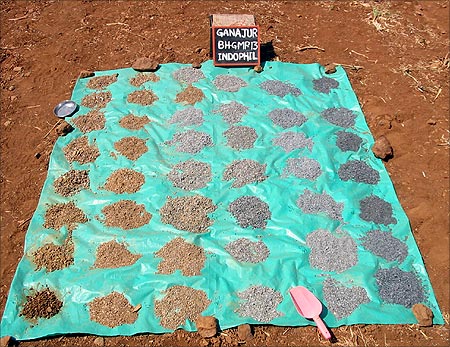
The study, published online on October 10 in Journal of Hazardous Materials, has shown for the first time that people living in Kiradalli Tanda have high level of arsenic in hair and nails and show symptoms of arsenic poisoning.
These include lesions and hardening of skin, dark spots and numbness and swelling in limbs. Lesions, if infected, pose a threat of gangrene.
The symptoms were visible in 58.6 per cent of the 181 individuals who were screened. Long term arsenic exposure can also lead to different types of cancers like that of the skin.
Cases of arsenic poisoning and cancers related to arsenic were first identified in the village in July 2009. Interviews by the researchers reveal the community first observed skin lesions around 15 years ago.
...
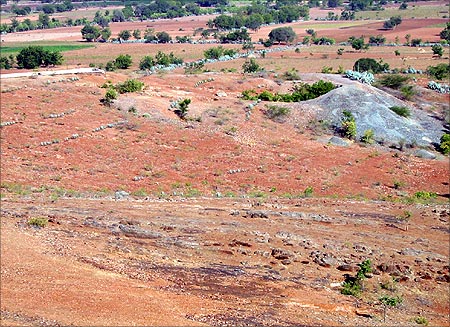
Exposure could be through the deep bore wells dug in the area in 1984 to provide clean drinking water and control guinea worm disease.
Even old dug wells have high arsenic levels. It is likely the ground water got contaminated when gold mines were flooded in 1994 and had to be abandoned.
The researchers tested water samples from 59 tubewells and found that 79 per cent had arsenic much above the permissible limit of 10 microgram per litre. Some wells had arsenic concentration as high as 300 microgram per litre.
...
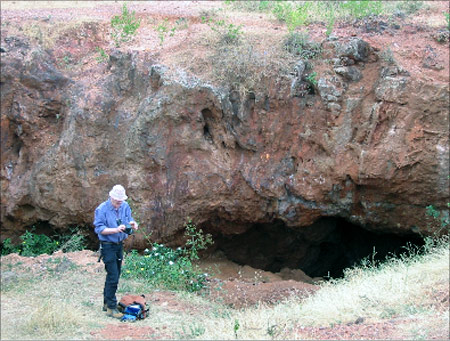
Of the 12 topsoil samples, six had over 2,000 mg arsenic per kilogram of soil, indicating an impact of mine tailings.
"This is the first time a link between gold mining and arsenic poisoning has been indicated," says Dipankar Chakraborti of School of Environmental Studies of Jadavpur University in Kolkata, the lead author of the study.
"We have to carry out further studies to conclusively show that the arsenic is from the gold mine and not from natural geological factors," he says.
...
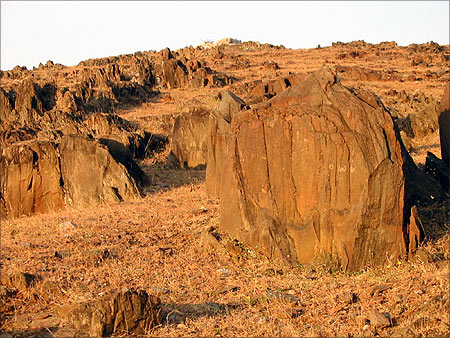
There are many amputees in the area; this is probably due to arsenic poisoning, says one of the researchers, Kusal K Das from Al Ameen Medical College and Hospital in Bijapur, Karnataka.
"The people never realised they are suffering from arsenic poisoning," he says.
The study is the first scientific description of chronic human arsenic toxicity in areas with historic gold mining, say the researchers. Arsenic poisoning has traditionally been reported from West Bengal and the Indo Gangetic Plain. Prevalence of arsenical skin lesions in the village is comparable to that in other affected areas in South Asia.
...
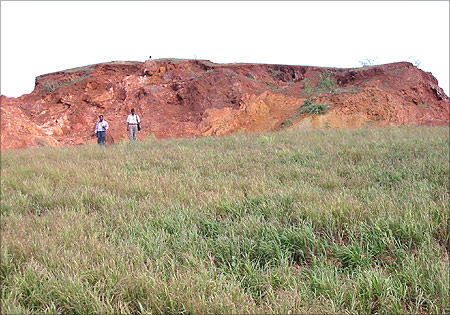
The study adds a new dimension to the impacts of environmental degradation on health, says Gopal Dabade, a public health expert in Karnataka.
To establish a link between arsenic contamination and health, the government has to accept this as a public health issue, he adds.
The good thing is that the Karnataka government has already started providing safe drinking water to the villages with high levels of arsenic in water.
Reprinted with permission from Down to Earth magazine